If you have ever grown up next to a pond, observing the teeny-weeny creatures in the water—tadpoles, worms, waterbugs and a host of others—going about their day is just exciting. Or, for that matter, a line of ants carrying their bounty back home is absorbing too! But, what if you could look at the microscopic world beyond what meets the eye with a small tool in your pocket? How about getting a closer look at the numerous protozoans, diatoms, fungi or even the tiny food bits in an ant’s mouth? Sensational, you say? Well, that’s what you can do and more with the Foldscope!
A Foldscope is a pocket microscope which can magnify objects with a resolution that is comparable to, or better than, a conventional microscope that sits on the table of a laboratory. It was invented by Prof. Manu Prakash and Dr. Jim Cybulski at Stanford University, USA and is now manufactured by Foldscope Instruments Inc. And, all you need is about 10 seconds to set it up and voila, you are all set to explore the microcosmos!
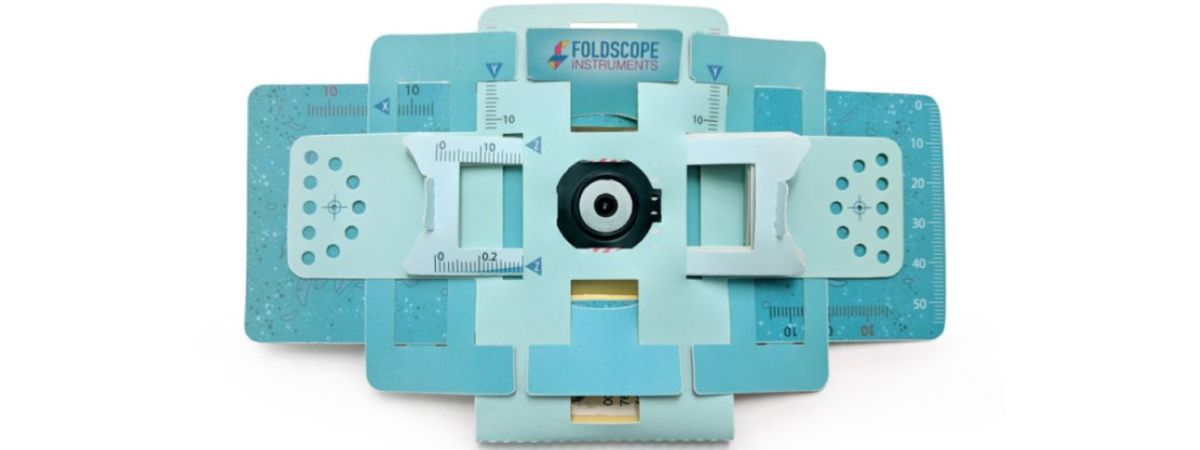
Gubbi Labs is excited to bring the magic of Foldscopes to all the curious minds in India. For over a year, the team at Gubbi Labs has been experimenting with Foldscopes to use it for educational, research and recreational purposes in the Indian context. Prior to this, we must be grateful to Prof. K VijayRaghavan, then Secretary, Department of Biotechnology, Govt. of India for breaking the ice, and all the efforts in bringing this to India. And then the efforts of Dr. Shailja V. Gupta at the Department of Biotechnology, Govt. of India is gratefully acknowledged who facilitated a series of workshops along with Prakash Labs across the country through which we also got introduced to Foldscopes. In this blog, we journal our experience in the journey of magnifying our curiosity with the pocket microscope.
Tapping the curiosity of the kids
Kids are born curious, and always want to know the why-what-how-when-who of all things around them. Imagine their electrified brains handed a Foldscope! In the past year, Gubbi Labs, along with Dr. Jim Cybulski, co-inventor and CEO of Foldscope Instruments, has conducted numerous training workshops for kids to show them how to use a Foldscope. The team visited schools and colleges all across the country, including Bengaluru, Gubbi, Bisle, Madikeri, Goa, and Delhi.
“We have conducted over 30 different workshops across India”, says Dr. Cybulski, talking about his experience here. “Both students and teachers really like the idea”, he gushes with a sense of satisfaction in his eyes. In these workshops, students were provided with a Foldscope each, and after training them to use it, they were encouraged to go outside and collect their samples.
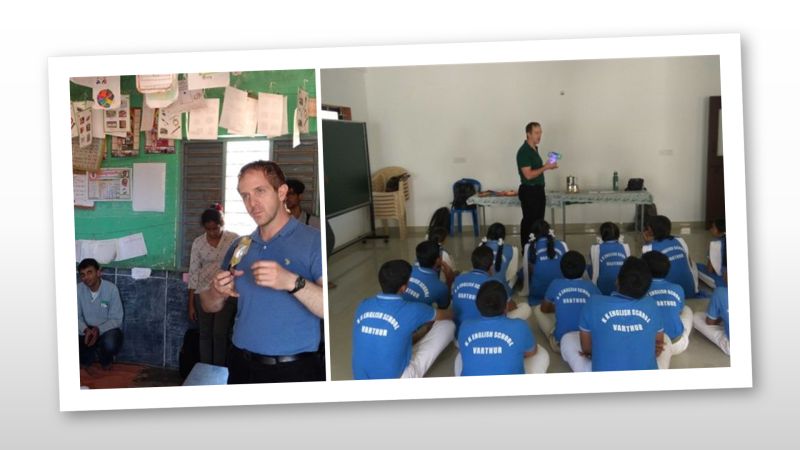
The results that we saw through the lens were mindblowing! From pollen grains to aphids under leaves, and from the compound eyes of dragonflies to blood moving inside a live louse—these were just some of the many interesting observations we have seen from the creativity of these curious young minds.
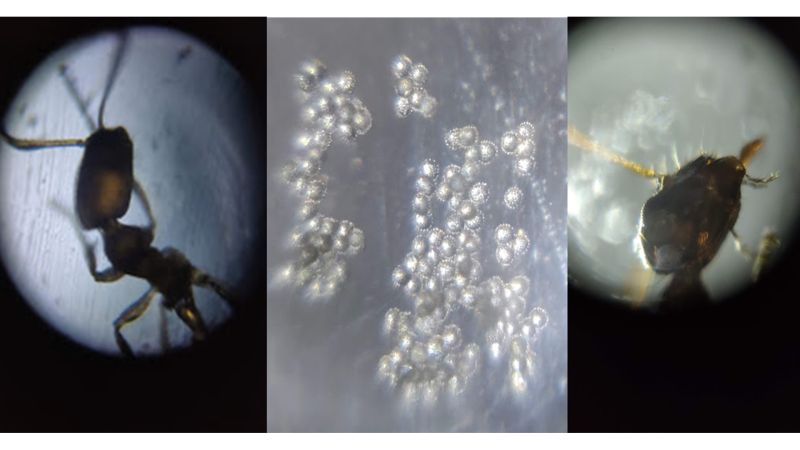
“Foldscopes are designed to bring technology into their daily lives. People realize that technology is important for doing science. Irrespective of if they're going to pursue a career in science, the ability to learn science and see how it is practiced is important. The reaction from students has been extremely good, they actively participated in discussions and came out of their shells”, recollects Dr. Cybulski.
Kengo Satomi, a Japanese biologist, and teacher visited India last year to assess if high school students better understand the concepts of microorganisms, specifically diatoms, using an online simulation tool. In association with Gubbi Labs, he conducted a survey of over 100 students in Gubbi taluk of Tumakuru, Karnataka. We also assessed if students preferred a Foldscope or a conventional microscope to observe microorganisms. Our preliminary analysis showed that more students preferred the personalized touch of a Foldscope for their encounter with the micro world.
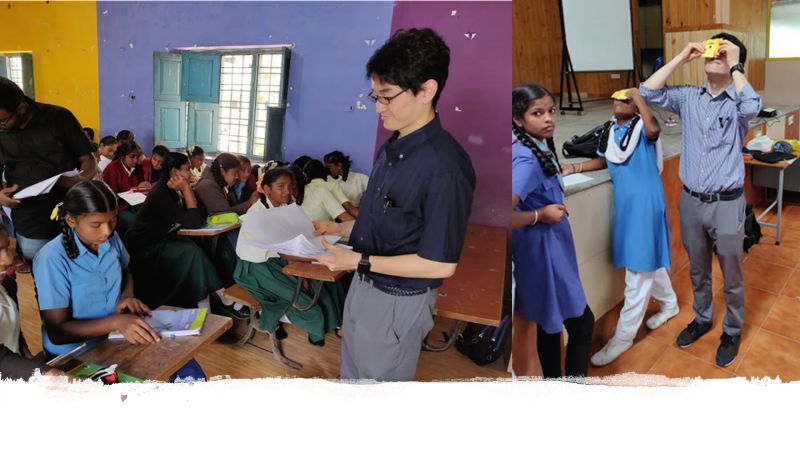
“These students should be really lucky,” remarks Spoorthy Raman, a science communicator at Research Matters. “In my school days, I was tired of looking at the textbook diagrams of a cell and wanted to see one with my own eyes. It took me a long wait of over five years, until my eleventh grade, when we were taken to a lab during our biology classes and shown a slide under a microscope. But, that was possible only because I had opted to study science,” she says.
How would her life change if there was a Foldscope?
“One of the things my school often told us was that buying a microscope was expensive, and it needed lab space and good maintenance. Considering the cost of the Foldscope, even the Deluxe Individual Kit, and slips into a pocket, my school could have afforded it. Perhaps, I would have understood cells and their structures much better,” she adds.
Foldscopes can play an important role in education and learning, especially for middle and high school students. Many schools in developing countries do not have access to microscopes, and even if they do, they often aren’t maintained well. Accessibility to these microscopes is also limited to the school curriculum and students are typically only allowed to observe specific samples pertaining to their syllabus. With a Foldscope in a child’s pocket, the world is the limit.
Training the trainers
Teachers are undoubtedly the de facto resources for most of the child’s intellectual needs. They play a part in shaping the curiosity of the next generation and hence, training them to train the kids is an obvious step. With that in mind, Gubbi Labs partnered with the India Literacy Project to train high school teachers in rural areas in the country to use Foldscopes in their biology and environmental science classes. The response was encouraging and the participants recognized how different these classes would be from now on.
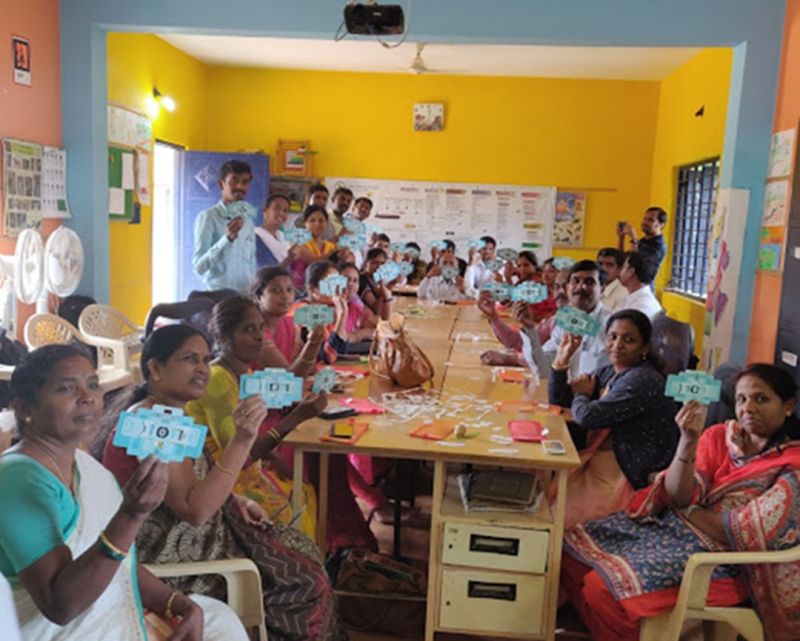
Another ambitious training program was held at the Veterinary College, Shivamogga on the use of Foldscope. Often, veterinarians in the field have limited access to laboratory equipment, hindering their research and work. During the workshop, some of the professors expressed that a pocket tool like Foldscope would benefit them with preliminary assessment while treating animals in the field.
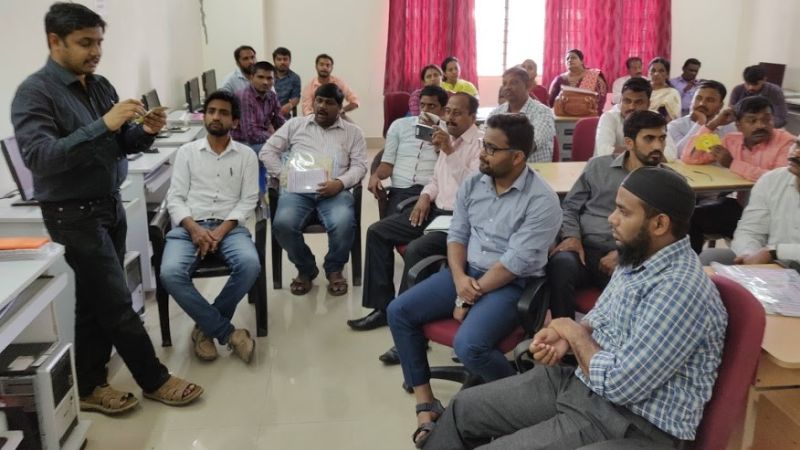
The participants of the workshop let their curiosity free and observed interesting samples like different species of ticks, buffalo semen and vaginal tissue from the cattle—specimens that they often deal with—under the Foldscope. The magnification was so high that live, individual buffalo sperm could be observed with great detail and defective sperms could be filtered out.
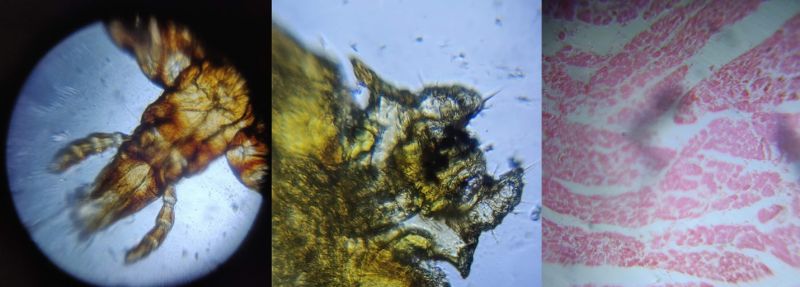
A versatile research tool
Being a hands-on research organization with many of the team members venturing out in the field for research, Gubbi Labs is convinced that a Foldscope is a ‘must have’ tool in the research kit. It is portable and lightweight, making it easy to carry around. Imagine a 3-kilogram microscope, the alternative, in your backpack! During a recent field trip to the Western Ghats to monitor biodiversity, our field ecologists used the Foldscope Deluxe Kits to observe ferns, live diatoms, elephant dung and stream water in a makeshift lab under a tree. It helped in the preliminary analysis of the samples, which otherwise would take several days until the sample was brought to a lab and tested. Thanks to Foldscopes, we could focus our efforts on collecting only those samples that were essential.
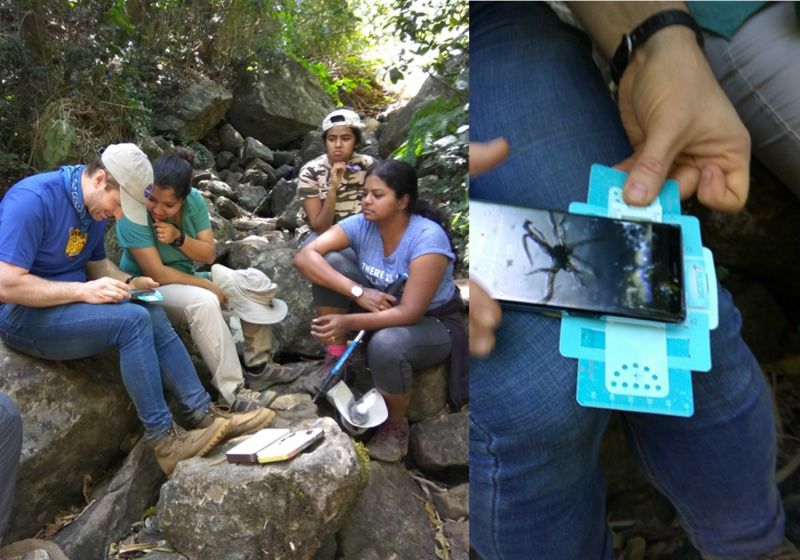
In a recent workshop for early career researchers, participants used Foldscopes to study diatoms—microscopic algae found mostly in water. The resolution and magnification of the Foldscope is high enough to identify many diatoms up to the genus level with the help of a field guide.
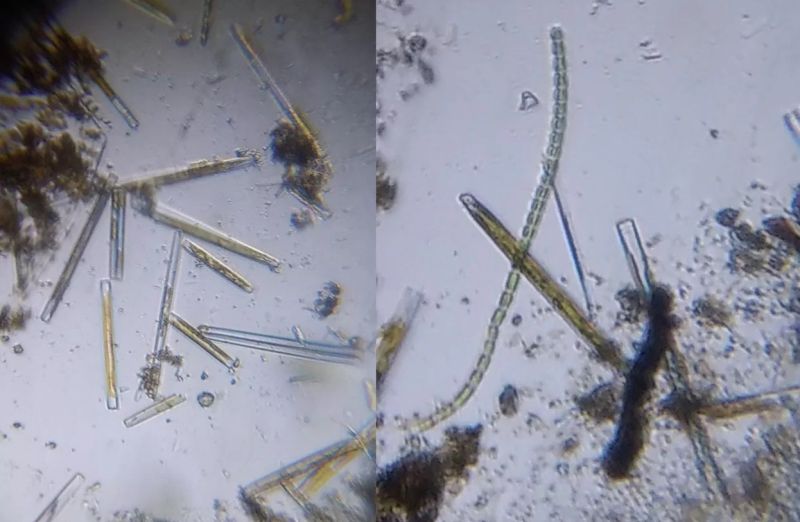
In our backyard, the team at Gubbi Labs used Foldscopes during 2018 annual ‘Bisle Frog Watch’ programme, where a group of ecologists and naturalists set foot in the Bisle Ghat of the Western Ghats to look out for frogs and monitor the biodiversity each year. The participants were thrilled to see the diatoms in tadpole excreta—a fact that many did not know existed.
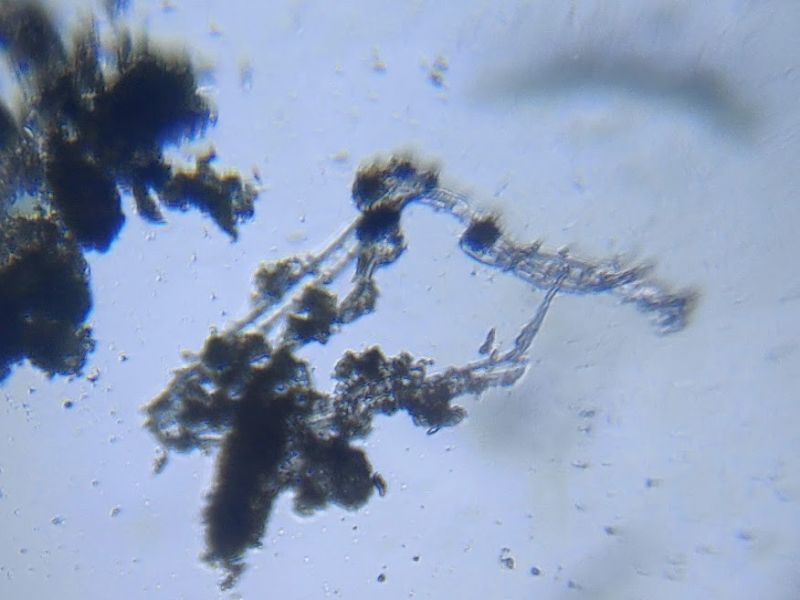
A hobbyist’s treasure
What if you are not a researcher or a student or a teacher? Well, a Foldscope is still for you. Travelers, especially hikers, often run into interesting things—mysterious plant parts, different types of soil, amazing bird feathers and so on. With a Foldscope in your pocket, you can better understand the world around you.
“Foldscope replaces the magnifying lens which was once carried around by nature enthusiasts”, declares Dr. Seshadri K S, a herpetologist and a naturalist who loves to go out and about.
“One could easily use it to explore pollen grains more closely or look at the microorganisms found in a puddle of water”, he says, detailing his journey with a Foldscope since a year. In several of their hikes, many on our own team have used to look at bird feathers during birdwatching and to observe high-altitude plants found in the heights of the Western Ghats.
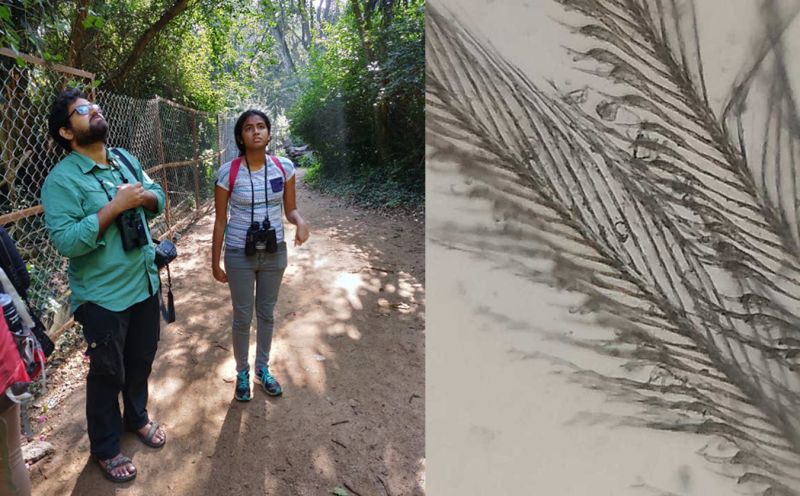
For photography enthusiasts, there is more good news. Foldscopes come with an option to attach your phone’s camera to the lens, thus helping you click the action in the micro world. The stunning patterns under the lens that you see from living and nonliving objects kindle your interest in micro-photography if you are not yet into it. Our canvas has been painted with some of the mesmerizing pictures of diatoms, pollen, insects, animal and plant cells, soil and fabric, to name a few.
"The foldscope looks very promising for photographing minute objects, even for creative photography, especially while using a mobile camera to click photos. It would be interesting to explore taking photos with a Foldscope and an SLR camera", says Arati Halbe, a micro-photography enthusiast.

What’s in the kit
The Foldscope is sold under two different models—the Deluxe Individual Kit and the Basic Classroom Kit. The Deluxe Individual Kit is designed to allow any curious explorer to perform microscopy experiments anywhere at any time. It includes one Foldscope (140x, 2 μm resolution microscope) in a portable and sturdy metal case along with a plethora of tools to collect and process samples, prepare slides and capture photos and videos on a mobile phone. The Basic Classroom Kit, as the name suggests, only includes the Foldscope, without many of the accessories. You can order your's here.
Every time you buy a Deluxe Individual Kit; you are supporting the Basic Classroom Kits that are deployed in communities around the world “at cost” by Foldscope Instruments, Inc. Further, at Gubbi Labs, the revenues from this would actually fund our costs (including salaries) for research, bird monitoring and other citizen science work we do. In addition, this would be used to fund costs in communicating science (pay our writers who contribute for https://ResearchMatters.in).
Whether you’re a student, teacher, scientist, health professional, naturalist, hiker, nature enthusiast, photographer or a curious cat, a Foldscope can always find a place in your bag and help magnify your curiosity.


